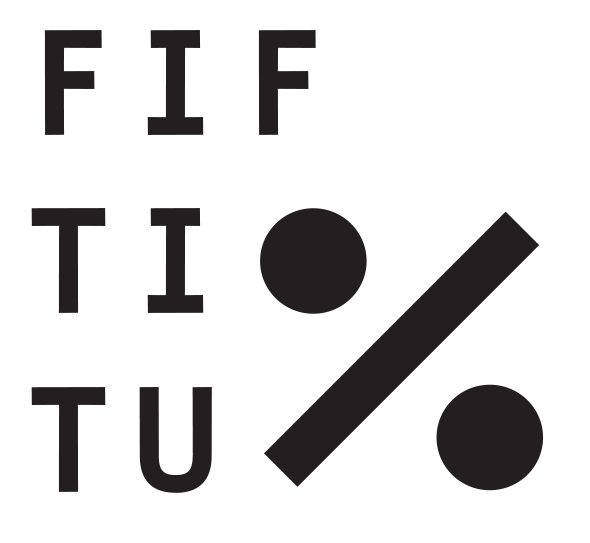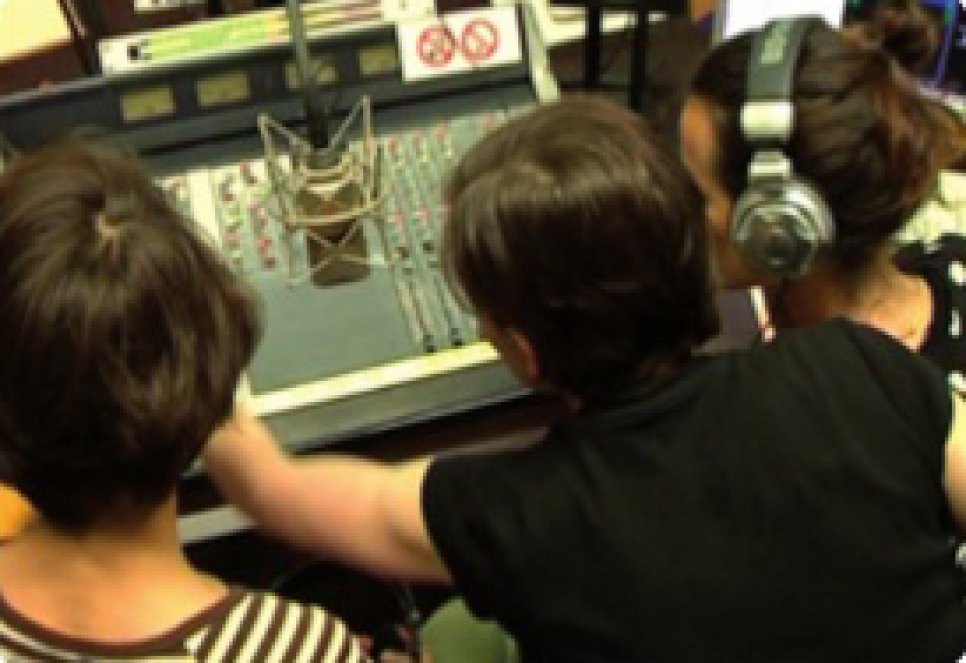squeezed up
"Working on Difference. Interventions of feminist theory" is the new book by Gudrun Axeli Knapp. She presented the book on March 6, 2014 as part of Feminism and Riot and the exhibition "Papergirl Linz" at the University of Art and Design Linz.
The event was a cooperation between the Institute of Sociology at Johannes Kepler University and the departments of Cultural Studies and Time-based Media at the University of Art and Design Linz.
Gudrun-Axeli Knapp is Professor of Sociology and Social Psychology at the University of Hanover. In this publication, she brings together essays and lectures that deal with the theory and practice of feminist criticism in a broad sense. The leitmotif of the texts is working on difference: this refers both to the question of the social constitution of gender difference and gender relations as well as the question of their mediation and refraction through other relations of difference and inequality.
The publication "Arbeiten am Unterschied. Interventions of feminist theory" by Gudrun-Axeli Knapp was published in the series "transblick", Volume 9, Studienverlag 2014.
///////////////////////////////
squeezed up
Feminism and Riot is a transcultural, women's political association for feminist riot on March 8, International Women's Day! Since 2013, musical, acoustic and performative actions for women's rights have been taking place in the city center of Linz on International Women's Day. In the program you can hear a short review of the events that took place in the city center of Linz on March 8, 2014.
//////////////////////////////
aufgequeerlt
Women's shelters Upper Austria take stock:
According to statistics from the Upper Austrian Violence Protection Center, 1,539 women were affected by violence in Upper Austria in 2012. However, a high number of unreported cases is assumed in this area because those affected usually do not report it to the police. The extent of the actual violence is shown in a recent report by the European Union Agency for Fundamental Rights (FRA), which presents the results of the world's largest survey on violence against women. According to the report, one in three women in the EU is affected by physical and/or sexual violence.
Austria compares relatively favorably among the 28 EU member states - even if this is no cause for celebration given the high overall rates of assault: the proportion of women who have experienced physical and/or sexual violence in Austria is 20 percent - 13 percent lower than the EU average.
In Upper Austria, five women's shelters - in Linz, Wels, Steyr, Vöcklabruck and Ried - offer women protection and support in the form of safe accommodation. The financial security of the women's shelters in Upper Austria has been guaranteed by the Upper Austrian Social Welfare Act since 2001.
The Upper Austrian women's shelters offer protection for up to 38 women and 64 children at any one time. In 2013, a total of 212 women and 199 children were accommodated in the five women's shelters. The perpetrators of the violence usually come from the immediate family circle. In 2013, a total of 212 women found protection and care in one of the five women's shelters in Upper Austria. 124 women fled from their husband, who was the source of the violence. A further 47 women stated that their partner was abusing them.
In 2013, 19 percent of women reported that they returned to their abuser. A year earlier, this rate was 26 percent. This finding is confirmed by the fact that 27 percent of women who found protection in an Upper Austrian women's shelter in 2013 had no income.
Maria Rösslhumer, Managing Director of the Association of Autonomous Women's Shelters, says: "The topic of violence against women is not yet discussed as openly in Austria as it is in Scandinavia, for example." Further campaigns are needed here, also to make the contact points better known. Because in this context, it is important to recognize violence against women as a problem and to be able to name it.
//////////////////////////////
aufgequeerlt
The fact that violence against women must also be seen in a global context can be seen from the aforementioned EU-wide study on violence against women. The European Union Agency for Fundamental Rights (FRA) interviewed 42,000 women aged between 18 and 74 across the EU between April and September 2012 about their experiences of violence. The interviews were conducted face-to-face. They lasted around 50 minutes each. And were conducted by specially trained people. According to the results, one in three women has experienced physical or sexual violence since the age of 15. "That's 37 million women, more than live in Italy," says Morten Kjaerum, Director of the Vienna-based Fundamental Rights Agency of the European Union (FRA), about the scale of the problem. Five percent of all adult women have been victims of one or more rapes, with the perpetrators often also being spouses or partners. Kjaerum: "That's nine million women, more than the total population of Austria."
Katya Andrusz, Journalistic Editor of the European Union Agency for Fundamental Rights (FRA), explains in an interview how the data was collected, the aims of the study and the challenges facing the individual EU states in 2014.
//////////////////////////////
squeezed up
On the one hand, we are outraged about violence against women, while at the same time, on another level, equality that has been fought for is to be abolished again.
In 2014, the Austrian Standards Institute proposed in a current draft of ÖNORM A 1080 to dispense with feminine forms and instead use general clauses to make it clear that women are also meant in the masculine form. But that's not all: the internal I and the female form of academic titles (Magistra/Mag.a or Doktorin/Dr.in) are also presented in the standard as linguistically incorrect. Female forms can be dispensed with in written texts, as male forms apply to both genders, according to the recommendation. In addition to numerous other necessary measures, gender-neutral language is an essential tool for achieving equality between women and men. In the view of the Association of Austrian Women Lawyers, the proposal made in several places in the draft to use the masculine form to refer to all genders as a "universally valid form" must be clearly rejected. The resulting - not new, but definitely no longer in line with modern reality - construction of "male" as the norm (and thus equating man = human) once again highlights the need for language that is actually gender-equitable, according to the lawyers.
Among other things, the Radio Helsinki contribution includes the position of the Association for Applied Linguistics, which sees the proposal of Austrian
Standards extremely problematic. The draft of Austrain Standards not only contradicts gender equality but also modern concepts of equality and the state objective provision (of Art. 7 Para. 2 B-VG,) according to which the federal government, provinces and municipalities
Equality between men and women. According to the Association of Women Lawyers.
It is still possible to comment on the draft standards until March 31, 2014. However, there are a few hurdles to overcome: Only those who register at www.austrian-standards.at can view the draft standard at all. Comments can then be entered via a form or - the easier way - sent to the responsible committee chairwoman DIin Dagmar Schermann, d.schermann@austrian-standards.at.
/////////////////////////////
squeezed up
March 19 is Equal Pay Day 2014, the day on which Austrian women will earn the same salary as their male colleagues at the end of 2013. From January 1, 2014, women will therefore work a whole 55 working days longer to earn the same amount.
We would also like to add a little math problem. Luise F. Pusch, the well-known linguist, claims that the correct Equal Pay Day is April 15, 2014 (for Germany). She arrives at 28% pay gap instead of 22% as the Federal Statistical Office of Germany. Why?
Here is the task: How high is the pay gap in Austria according to her calculation? The first correct answer after the program - gets one of the popular 52% T-shirts as a gift. E-mail to fiftitu@servus.at.
A tip for mathematicians: Think women-centered
(Also available at http://www.fembio.org in a March 2014 gloss.)
////////////////////////////
"served and decorated"
- April 7, 2014 at 7 pm at the Autonomous Women's Center a book presentation "KRANKHEIT UND GESCHLECHT" feminist philosophy and psychosocial counselling with Bettina Zehetner www.frauenzentrum.at
- April 25 to 30 Crossing Europe Film Festival www.crossingeurope.at
- 1 May 2014 Annual Alternative May Day Demonstration in Linz, to which Feminism & Riot also invites you to join in. The meetings are announced on the homepage www.feminismus-krawall.at
Music: CC


